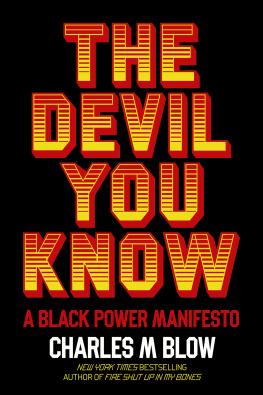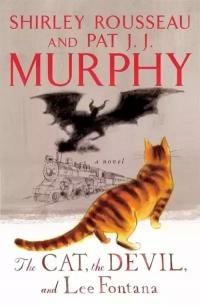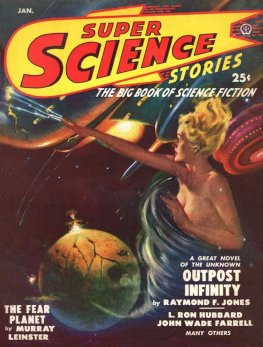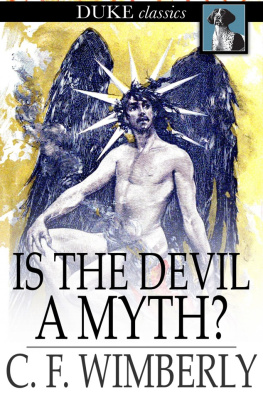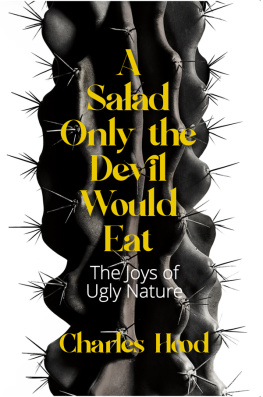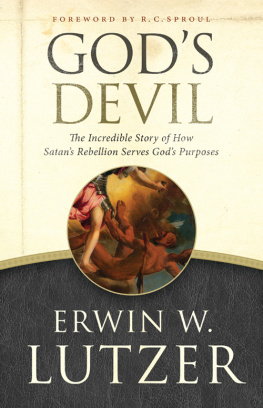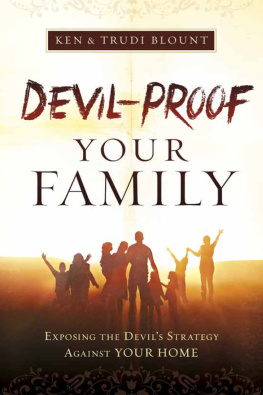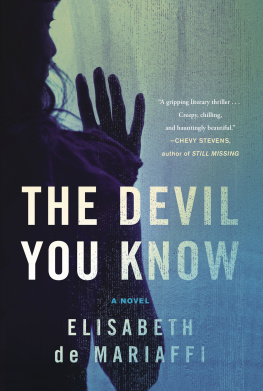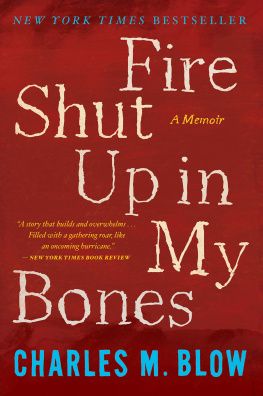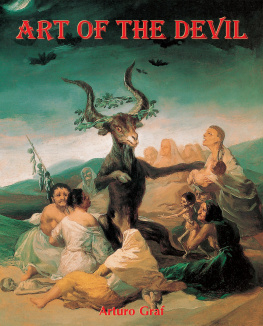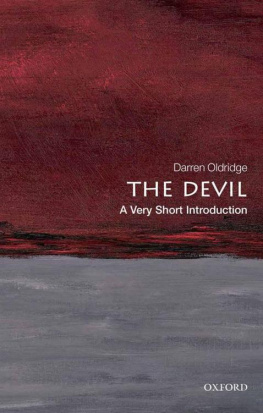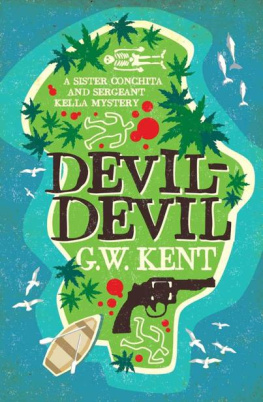Charles M. Blow - The Devil You Know
Here you can read online Charles M. Blow - The Devil You Know full text of the book (entire story) in english for free. Download pdf and epub, get meaning, cover and reviews about this ebook. year: 2021, publisher: Harper, genre: Politics. Description of the work, (preface) as well as reviews are available. Best literature library LitArk.com created for fans of good reading and offers a wide selection of genres:
Romance novel
Science fiction
Adventure
Detective
Science
History
Home and family
Prose
Art
Politics
Computer
Non-fiction
Religion
Business
Children
Humor
Choose a favorite category and find really read worthwhile books. Enjoy immersion in the world of imagination, feel the emotions of the characters or learn something new for yourself, make an fascinating discovery.
- Book:The Devil You Know
- Author:
- Publisher:Harper
- Genre:
- Year:2021
- Rating:5 / 5
- Favourites:Add to favourites
- Your mark:
- 100
- 1
- 2
- 3
- 4
- 5
The Devil You Know: summary, description and annotation
We offer to read an annotation, description, summary or preface (depends on what the author of the book "The Devil You Know" wrote himself). If you haven't found the necessary information about the book — write in the comments, we will try to find it.
The Devil You Know — read online for free the complete book (whole text) full work
Below is the text of the book, divided by pages. System saving the place of the last page read, allows you to conveniently read the book "The Devil You Know" online for free, without having to search again every time where you left off. Put a bookmark, and you can go to the page where you finished reading at any time.
Font size:
Interval:
Bookmark:
In memory of my big brother, Frederick Edward Blow:
so smart, so charming, so cool. He fought the good fight.
19622020
For a Negro, theres no difference between the North and South. Theres just a difference in the way they castrate you.
But the fact of the castration is the American fact.
James Baldwin, I Am Not Your Negro
I cant breathe!
George Floyd, Eric Garner, Black America, millions of protesters in the United States and around the world
He called out for his dead mother. He called out for his children.
Knee in his neck, cheek to pavement, the life slowly being pressed out of him by an officer whose demeanor was so unbothered that the sunglasses pushed back to the peak of his head were never disturbed.
George Floyd had been killed, casually, callously, in the street, in the full light of day, with witnesses watching, recording, and objecting.
This single act of morbid street theater, this murder in Minneapolis, struck at something in the social consciousness. There had been other killings of unarmed Black people, but this was different. This was depraved. This was disgusting.
There was no way to reason it away, to make it appear justifiable. There was no ambiguity. It was tragic and it was cruel, and it was the cruelty of it that activated peoples anger and disgust. It became a catalyst.
Millions of people, hitherto confined to homes by a deadly pandemic and a halted economy, poured into the street, mostly young, mostly white, to assert that Black lives matter, and to demand police accountability and reform as well as racial justice and equality.
A Pew Research Center report in late June 2020 found that 6 percent of American adults said they attended a protest or rally that focused on issues related to race or racial equality in the month preceding the survey. Thats about fifteen million people, an astounding number. The percentage of protesters who were white was nearly three times the percentage who were Black. The percentage of Hispanics was higher than the percentage of Black people as well.
People began to talk about the historic protests in the loftiest of terms, labeling them a racial reckoning, Athletes protested and boycotted and race car drivers held a racial solidarity parade. We held a quasi-social-distanced redux of the March on Washington. There were television specials about injustice and expanded coverage of protests. Books about race rose to the tops of bestseller lists.
States like New York and California passed police reform legislation, and scores of individual departments banned or restricted chokeholds and strangleholds and required officers to intervene when their colleagues used excessive force.
But, national progress, even on the issue of police accountability and reform, remained elusive. The slate of police reforms passed by the House quickly became bogged down in the Senate.
And to put it plainly: Most of the action amounted to feel-good gestures that cost nothing and shift no power. They create little justice and provide little equity. Even the House bill, with its de minimis slate of reforms, would basically punish the systems soldiers without altering the system itself. It would make the officers the fall guy for their bad behavior while doing little to condemn or even address the savagery and voraciousness of the system that required their service.
The bill stalled as the protests began to dwindle. People were then forced to consider whether many of the people who marched and carried signs were truly committed to Black lives and Black liberation or whether some, deprived of rites of passage, parties and proms, had simply developed a cabin fever racial consciousness, using the protests as congregational outlets, treating them like a social justice Coachella, a systemic racism Woodstock.
Young people could be outside, together, part of something, feel something. For some, the protests were simply a rebellion against isolation and social distancing. The protests became a proxy for a hall pass.
When Jacob Blake, another unarmed Black man, was shot seven times in the back, in front of his children, again in the street in broad daylight, just one state over from where Floyd was murdered, there was no similar outpouring of outrage. The summer was winding down, schools were reopening, and the fashion had faded.
A poll of people in the state found that in the weeks after Floyd was killed, the approval of Black Lives Matter protests among white Wisconsinites was net +22; in the days leading up to Blakes shooting, it was net 5. Among those who were Black or Hispanic, the net approval held steady at +58.
In some cases, white allies even began to center their own maltreatment while protesting rather than the fundamental issue at hand: the treatment of Black people throughout their lives. How dare the police treat these white liberals poorly, unfairly assault or arrest them? For Black people, state violence and injustice are an intrinsic reality; for white liberals, it was a jarring outrage, an assault on their privilege.
For these protesters, the social justice battle for Black lives was converted into a First Amendment battle for free speech and the right to assemble. That became the glue that bound them to the cause.
But in the binding, as is always the case, the precise, particular grievance of Black America is ever in danger of subsumption. The Black battle is not necessarily joined but hijacked, overwhelmed, by the white liberal grievance.
E. D. Mondain, president of the Portland, Oregon, branch of the NAACP, wrote an opinion piece about the protests in that city for the Washington Post under the headline, Portlands Protests Were Supposed to Be about Black Lives. Now, Theyre White Spectacle. In it he questioned:
Vandalizing government buildings and hurling projectiles at law enforcement draw attentionbut how do these actions stop police from killing black people? What are antifa and other leftist agitators achieving for the cause of black equality? The Wall of Moms, while perhaps well-intentioned, ends up redirecting attention away from the urgent issue of murdered black bodies. This might ease the consciences of white, affluent women who have previously been silent in the face of black oppression, but its fair to ask: Are they really furthering the cause of justice, or is this another example of white co-optation?
And in the end, however protest is performed, for what motivations, it will eventually wane. Outrage is an expensive emotion. It consumes energy like a blaze. At some point, inevitably, the fuel is exhausted. In the afterglow of it all, in the ash, what have we truly gained from this episode beyond displays of performative activism by organizations and allies, people cosplaying Black allegiance, and legislative tokenism that assuages white guilt and attempts to coax Black people into passivity, into quietly absorbing an endless oppression?
The supposed racial reckoning served only to underscore racisms rigidity. Not much changed for Black people. Power didnt shift. But, it must.
On November 3, 2020, in a historic election with record turnout, nearly half the voters cast their ballots for Donald Trump, an unrepentant racist who ran for reelection under the racially coded law and order mantra, encouraged police brutality and attacked the Black Lives Matter movement. Joe Biden, a long-standing centrist whose failing candidacy during the primaries, it should be noted, was thrown a lifeline by Black people in the South, claimed victory over Trump as both men received a record number of votes.
But, further down the ballot, little changed. In the weeks following the election, control of the Senate had yet to be determined, while Republicans picked up a few seats in the House. Of the eleven gubernatorial races, only oneMontanaflipped from blue to red. And, it was effectively status quo in state legislatures, as Democrats attempts to retake the majority fell short. As the National Conference of State Legislatures pointed out in the days following the election: With just two chamber flips so far, it looks like 2020 will see the least party control changes on Election Day since at least 1944, when only four chambers changed hands. While not all the races had been called at this point, it seems clear that Republicans will control a majority of the redistricting that will take place in 2021.
Font size:
Interval:
Bookmark:
Similar books «The Devil You Know»
Look at similar books to The Devil You Know. We have selected literature similar in name and meaning in the hope of providing readers with more options to find new, interesting, not yet read works.
Discussion, reviews of the book The Devil You Know and just readers' own opinions. Leave your comments, write what you think about the work, its meaning or the main characters. Specify what exactly you liked and what you didn't like, and why you think so.

